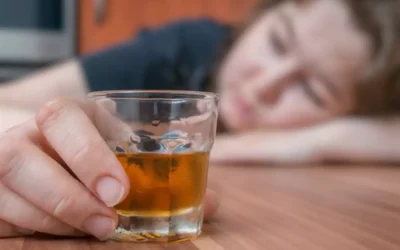From Curiosity to Dependence: The 4 Stages of Alcohol Misuse
Among trauma-exposed participants, re-experiencing symptoms were present in 72 participants (52%), hyper-arousal symptoms were present in 51 participants (37%) and avoidance/numbing symptoms were present in 47 participants (34%). This study was conducted in late 2010, long before the major earthquakes hit Nepal in April and May, 2015. Trauma psychiatry is only in its infancy, partly because of resource limitations and poor local constructs for PTSD hindering treatment seeking [39]. The nation’s specialized psychiatry and addiction treatment facilities are concentrated in the major cities and serve patients from across the country.
Race and Ethnicity Considerations Related to AUD and PTSD
While alcohol initially offers a sense of relief, it eventually compounds the problem, trapping individuals in a cycle of trauma, alcohol usage disorders, and deteriorating mental health. And of course, if someone is using alcohol to mask the symptoms of PTSD, that means they may go longer without realising they have PTSD, so the root cause of the symptoms goes untreated. A critical aspect of Alcohol Usage Disorders often overlooked is its strong connection with PTSD, a condition triggered by traumatic experiences.
Alcohol Misuse No Reason to Avoid Exposure Therapy for PTSD – Psychiatric News
Alcohol Misuse No Reason to Avoid Exposure Therapy for PTSD.
Posted: Thu, 04 Jul 2019 07:00:00 GMT [source]
The role of therapy
- To our knowledge, no study has examined strategies that aim to prevent the development of comorbid PTSD and AUD in military and veteran populations.
- At present, a wide array of assessment tools exist that allow for the efficient and effective screening, diagnosis and symptom monitoring.
- The TLFB has been used to monitor changes in substance use during the course of treatment (Back et al., 2005; Back et al., 2006; Back, Killeen, Foa, Santa Ana, Gros, & Brady, 2012; Brady, Dansky, Back, Foa, & Carroll, 2001; Brady, Sonne, Anton, Randall, Back,& Simpson, 2005).
- They cited flawed study data, questionable research conduct and significant drug risks, including the potential for heart problems, injury and abuse.
There are different causal pathways that may explain this high co-occurrence, that are not mutually exclusive. Firstly, SUD could lead to an increased risk of developing PTSD by leading a more risky lifestyle, which increases chances to experience traumatic events (e.g. being assaulted violently or sexually when being under influence of substances) [4]. Besides studies that have examined PTSD treatments that were added to SUD treatments, there are several studies that have examined the effectiveness of integrated treatments that integrate SUD and PTSD components within one treatment. Most consistent evidence is found for COPE (concurrent treatment of substance use disorders and PTSD using prolonged exposure), that includes motivational enhancement and CBT for SUD, psychoeducation relating to both disorders, and PE for PTSD [11, 35].
PTSD and Alcoholism in Women

The first author collected blood samples at least 4 days (mean 34.4, SD 32.7) after the last alcohol intake and conducted fully structured psychiatric interviews after 10 days in the treatment programs. Patients were undergoing treatment for a mean of 54.9 days (SD 47.2), and a great majority of them (86%) were from a rehabilitation PTSD and Alcohol Abuse center setup. This study found that the prevalence of probable PTSD within the group scoring positive for alcohol misuse was 13.6 %. This is slightly less than previous studies have found, with the rate of PTSD in those with alcohol misuse commonly reported as 15–30 % [51–53] and sometimes greater than 50 % [54].
- In this study, there was no significant improvement in PTSD symptoms over time and no medication effect.
- Over the past few decades, important advances have been made in behavioral treatments for comorbid AUD and PTSD.
- This study found that the prevalence of probable PTSD within the group scoring positive for alcohol misuse was 13.6 %.
Treatments for Comorbid AUD and PTSD
Cognitive Effects of Electroconvulsive Therapy in Schizophrenia: A Systematic Review
Causes and Symptoms of PTSD
Understanding the Link Between PTSD and Alcohol Abuse

